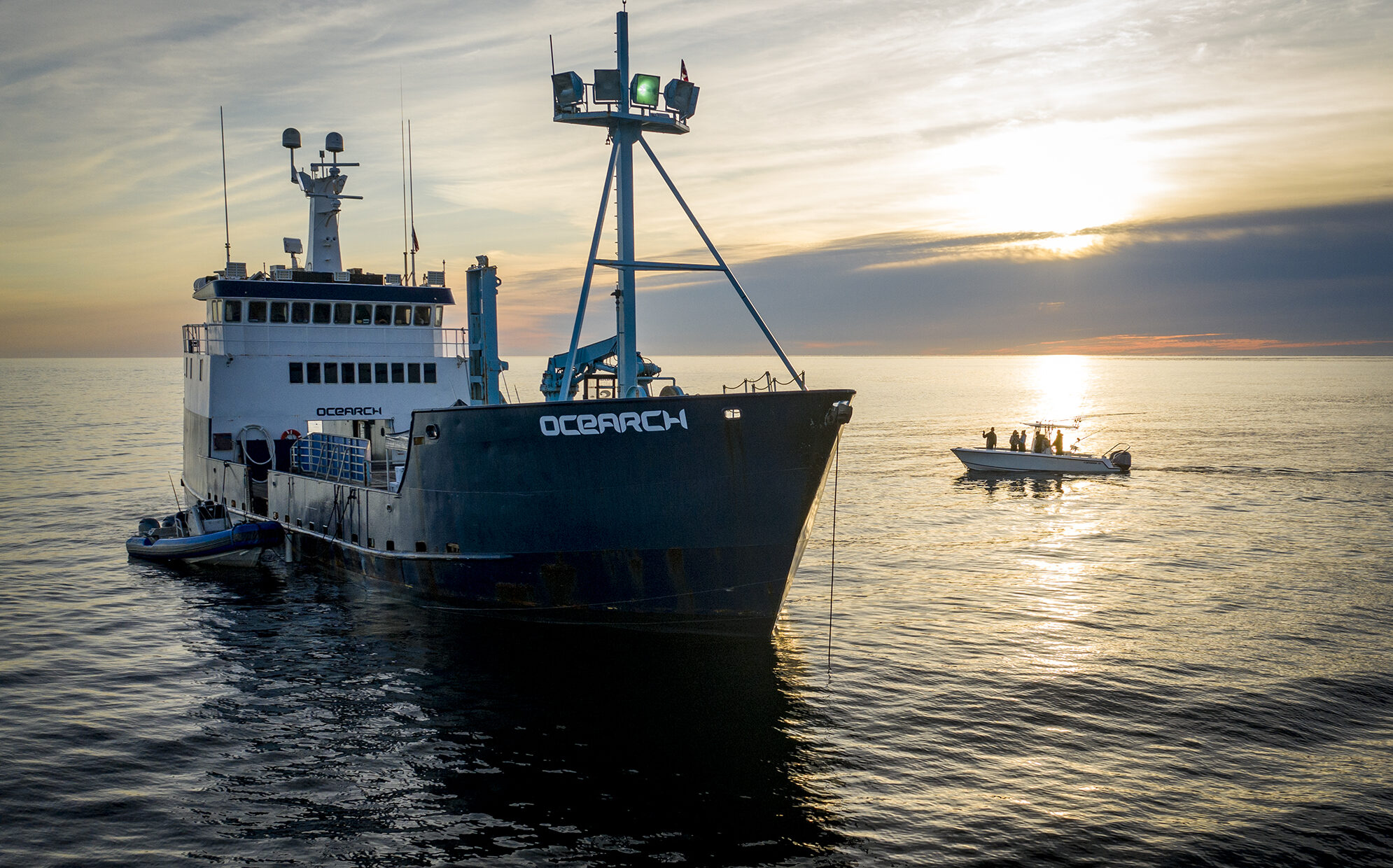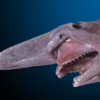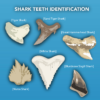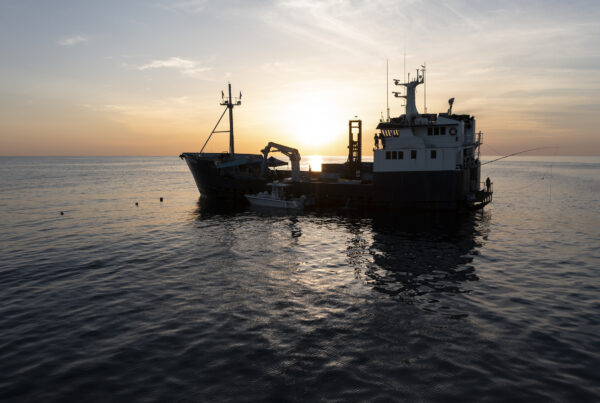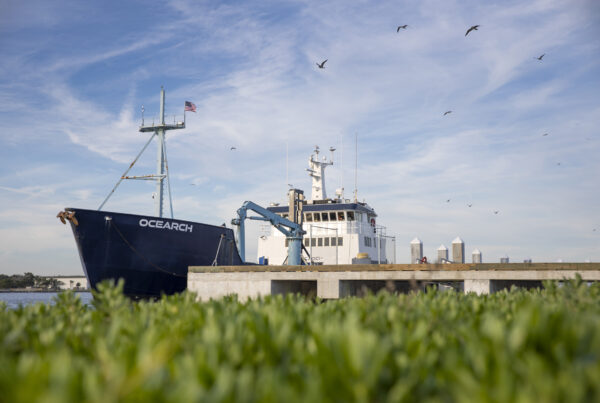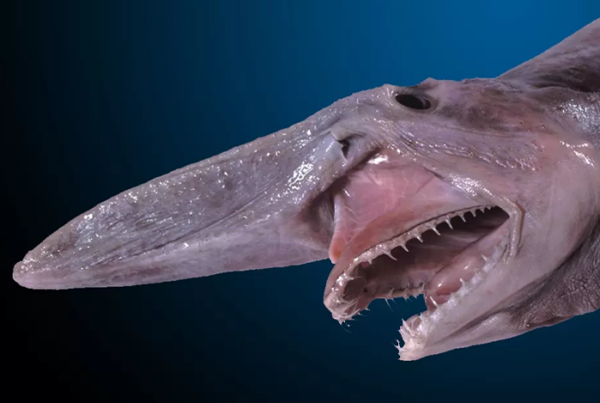40th White Shark Research Expedition in the Carolinas
OCEARCH’s premier data tracking studies have shown that the Carolina coast is a critical overwintering site for Northwest Atlantic white sharks. Several of the sharks OCEARCH has tagged on previous expeditions currently appear to be in this region. This is why the organization has decided to make its first trip targeting North Carolina.
OCEARCH will launch its 40th expedition off the coast of the Carolinas from March 12 to April 1 to continue its great white shark research in the Northwest Atlantic. During the three week expedition OCEARCH will partner with 42 scientists and 28 institutions in order to collect data to support 23 different ocean research projects.
The Carolina region contains a dynamic confluence of currents and water temperature, producing high productivity and potential food sources for sharks. It appears that adult white sharks of both sexes come together here before mature females head offshore. Why do sharks prefer this region in winter and spring? Could this be when and where they are mating? These are just a couple of the questions OCEARCH’s research team will try to answer during Expedition Carolinas.
“When studying the tracks of mature male white sharks Mahone and Breton on the OCEARCH Global Shark Tracker, along with mature female white shark Nukumi, it is fascinating how all three adult animals moved with purpose from their late summer/fall feeding aggregations in Nova Scotia directly to the Carolinas and paused. The only way to find out why is to sample animals and see what the data says. One thing is for sure, you’re not gonna figure it out sitting at the dock. Weather and locating sharks in this vast area will be our biggest challenges,”
-Chris Fischer, OCEARCH Founder
Throughout this expedition OCEARCH hopes to tag more animals to add to their North Atlantic White Shark Study, determine if the Carolinas have potentially higher numbers of sharks than elsewhere in March, and explore what factors may be affecting the health of white sharks in this region. Samples collected from every shark tagged on the expedition will be used to support research in a variety of areas including reproduction, prey identification, population genetics, winter residency studies and more. “We’re excited to fill in the gap that exists in our data from the Carolinas region. There’s no doubt this season and place holds important clues to the life history of the white shark in the Northwest Atlantic,” said OCEARCH Chief Scientist Dr. Robert Hueter.
In addition to furthering OCEARCH’s white shark studies in the Northwest Atlantic, the team will also be collaborating with local institutions in hopes to sample and tag sand tiger sharks. Several organizations in the Carolinas are working to create sustainable populations of sand tiger sharks, a predator that can be found off North Carolina much of the year. Tagging and collecting samples from additional sharks will allow researchers to better understand the species’ movement patterns, reproductive cycles and health in this region.
Expedition Carolinas will depart from Brunswick, GA on March 12 and move up and around the Carolina coast with a final docking planned in Wilmington, NC on April 1. OCEARCH will continue to abide by strict COVID-19 protocols throughout the expedition, which unfortunately means customary community outreach programs and public tours will not be available. Instead, the public is encouraged to follow along with the expedition on social media (@ocearch) and online at ocearch.org.
